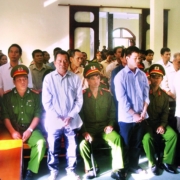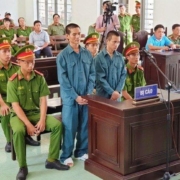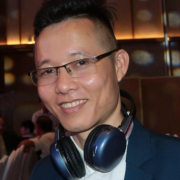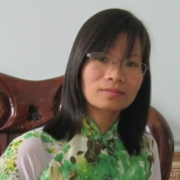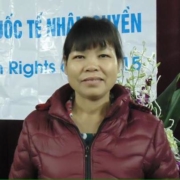Vietnam Free Expression Newsletter No. 28/2024 – Week of July 14-22
Greetings from Project88. We bring you news, analysis, and actions regarding human rights and civil society in Vietnam from July 14-22.
The big news of the week, of course, is the passing of General Secretary Nguyen Phu Trong on July 19. His state funeral, which U.S. Secretary of State Antony Blinken will attend, will be held on July 25 and 26. For now, President To Lam is holding the General Secretary powers. There’s no word yet on when an official succession vote will happen.
Analysis of a post-Trong Vietnam, and particularly one headed by To Lam, has abounded in the days following Trong’s death – read more in the “Vietnam in the World” section. While some observers believe business will continue as usual, Project88 and many others have warned of an even more authoritarian future under To Lam. As Vietnam’s top cop, Lam orchestrated a sprawling crackdown on dissent and independent civil society in his nine years at the helm of the MPS, which was cemented into policy with Directive 24. Under To Lam’s watch, from just 2018-2023, the Vietnamese authorities arrested 330 human rights activists and dissidents.
The potential for To Lam to further consolidate his power comes at a critical point in Vietnam-US and Vietnam-EU relations. Both partners have pledged billions in financial and technical support to Vietnam for its Just Energy Transition Partnership. Later this week, the US Commerce Department is expected to rule on a proposal to upgrade Vietnam’s market status. And Antony Blinken’s trip to Vietnam for Nguyen Phu Trong’s funeral also aims to “underscore the strength of the Comprehensive Strategic Partnership with his government counterparts in Hanoi.” Also this week, EU foreign policy chief Josep Borrell will visit the country for talks on “security and sustainable development.”
Speaking of sustainable development, Japan, part of the JETP funders group, is drawing fire for its investment in a $10 billion gas field in Vietnam. And in other news this week, Y Quynh Bdap has new hearing dates set; a Facebook user was sentenced to seven years in prison; and labor activist Hoang Duc Binh is in urgent need of medical attention after a three-month period in solitary confinement.
HUMAN RIGHTS & CIVIL SOCIETY

Y Quynh Bdap
The extradition hearing for Y Quynh Bdap in Bangkok, originally scheduled for July 15, has been postponed and rescheduled for August 10 and 19. Although it is supposedly an open trial, only representatives from the U.S. and Canada and Vietnam will be allowed inside. No media or NGOs can attend. Bdap was arrested by Thai police on June 11, after he had a meeting at the Canadian Embassy regarding his resettlement. Bdap is a co-founder of the ethnic minority rights group Montagnards Stand For Justice, accused by the Vietnamese government of being a terrorist organization, something he categorically denies.
A Facebook user was sentenced to seven years in prison under Article 117 by a court in Hung Yen Province on July 11. Pham Van Cho, 60, was accused of live streaming and posting content from 2019 to 2013 that allegedly insulted the Party and Ho Chi Minh. He was arrested in January 2024. It’s not known if Cho had a lawyer at his trial.

Hoang Duc Binh
Hoang Duc Binh’s brother, Hoang Duc Nguyen, has raised alarms about Binh’s deteriorating health after he and his mother visited him at An Diem Prison earlier this month. After three months in solitary confinement and having his legs shackled for 10 days in late March for protesting against prisoner mistreatment, Binh could barely walk and reportedly had blood in his urine. He has repeatedly asked to have a health checkup, but so far prison officials have allegedly not responded to his requests. Several other prisoners have also asked that Binh be given a medical exam but they, too, were ignored. Nguyen asks that Binh’s case be highlighted and that pressure be put on An Diem authorities to give Binh a proper medical exam before his health worsens. More details about the prison protests and solitary confinement, which were corroborated by a fellow inmate, can be read in Binh’s database profile.

Huynh Thuc Vy
Former political prisoner Huynh Thuc Vy’s application for a new passport was reportedly denied by Dak Lak provincial authorities, citing reasons of “national security.” Vy’s passport was confiscated at Tan Son Nhut Airport in 2015 when she was traveling to Bangkok to attend a training class on digital security held by Reporters Sans Frontiere. In an interview with RFA, which Vy also confirmed directly to Project88, she said that she was only told, orally, that she still was on the list of people who cannot leave the country. However, officials told her this could change in the future “depending on her behavior,” which she understood to mean not speaking out on social media against the police or the state. Vy was sentenced to three years in prison for “desecrating the national flag” but was released three months early in June of this year.

Huynh Duc Thanh Binh
Huynh Duc Thanh Binh told his mother, Nguyen Thi Hue, that he had “symptoms that resemble malaria” twice a day for several days last month before he was treated with medication. After about a week, the symptoms went away, but Binh also lost another two kilograms as a result. Binh was arrested in July 2018 and sentenced to 10 years under Article 109, allegedly for “carrying out activities aimed at overthrowing the government.” Hue told Project88 that on the day of his arrest, about 50 police personnel went to her house and searched everywhere, including inside the water pipes in the bathroom, but found nothing. The only items they ended up taking away were his laptop, phone, and iPad.

Dang Dang Phuoc
Teacher Dang Dang Phuoc’s wife, Le Thi Ha, told Project88 that Buon Me Thuot provincial police summoned her on July 11 to question her about her Facebook activities and the people she met at a wedding and during a visit to Phuoc Buu Temple where she met, purely by chance, a representative from the U.S. Consulate. They also asked her about her interview with RFA and suggested that she stop sharing information about her husband’s condition with others. Hue told them she doesn’t use Facebook and only tells people about Phuoc if someone asks. At the end of the interrogation, the police mentioned to Hue that “we have not reported these activities to the school” where she works, strongly hinting that her employment could be in danger if she doesn’t stop advocating for her husband. Last month, Phuoc was put in solitary confinement for allegedly breaking prison rules.

Nguyen Dinh Thanh
Former political prisoner Nguyen Dinh Thanh, a medical student who was arrested in 2018 for protesting against the cybersecurity laws and sentenced to six years in prison, described to Project88 the terrible conditions he and other political prisoners had to endure at the detention center in Binh Duong and later at Xuan Loc Prison. Thanh said at Xuan Loc they were not provided with drinking water and had to use what they could catch during the rainy season. During the dry season, they had to buy water from the prison. It wasn’t until 2024 that political prisoners were given fresh drinking water, said Thanh. Thanh was released one year early, in June 2024, and said he was “forced to write a letter of confession.”

Le Trong Hung
Le Trong Hung’s visually-impaired wife, Do Le Na, reported that Hung had just finished taking antibiotics to treat a throat infection. After taking their two children to visit their father in July 2024, Na said her husband’s health appeared to be in stable condition–nothing had gotten better or worse since she last visited him in June at Nghe An’s notorious No. 6 Prison.
VIETNAM IN THE WORLD: NGUYEN PHU TRONG AND TO LAM
Vietnam’s Lam, a public security maven who could strengthen his grip on power. Reuters; 2024-07-19. Vietnam’s President To Lam, who has taken on the duties of deceased Communist Party chief Nguyen Phu Trong, is a skilful behind-the-scenes operator long involved in public security who is seen as capable of consolidating power further. Like China, Vietnam is ruled by a communist party but, unlike its neighbor, it has engaged in more collective decision-making with leaders being subject to multiple checks. But if Lam, 67, were to continue to wear both the president and party chief hats, as Xi Jinping does, for some time, the Southeast Asian nation could see a more autocratic style of leadership, according to analysts, diplomats and activists
Death of Vietnam’s Top Leader Raises Questions of Succession. New York Times; 2024-07-20. With the death Friday of Vietnam’s long-serving Communist Party general secretary, Nguyen Phu Trong, the country’s top leadership role has been left at least temporarily to President To Lam, who is best known for implementing a sweeping anticorruption drive. Mr. Lam, 67, was named Thursday to take over the general secretary’s duties at the Politburo, the Party Central Committee and the Secretariat for an unspecified period. He will also continue as president, a largely ceremonial post for which he was chosen just two months ago. Whether he will retain the duties of general secretary on a more permanent basis depends on the Politburo, which is expected to decide whether to confirm his new role. If it does, Mr. Lam would have the chance to consolidate his position within the party before it holds its next congress in 2026 to select the country’s top leaders for the next five years.
What Nguyen Phu Trong’s Death Means for Vietnam. Council on Foreign Relations; 2024-07-19. The Communist Party announced the death of Secretary Nguyen Phu Trong—the top leader in Vietnam’s political system—at eighty years old this morning. Until recently, the role of party general secretary shared power with several other positions in the Vietnamese leadership structure. Secretary Trong strengthened Vietnam’s place on the world stage while increasingly consolidating control and limiting dissent.
Vietnam’s most senior political leader has died, leaving behind a vacuum in the party. NPR; 2024-07-21.
SULLIVAN: If To Lam does end up on top, it’s likely to be bad news for Vietnamese looking for more political freedom in a country that already brooks almost no dissent. Alexander Vuving.
VUVING: I think that because To Lam’s background and his power base in the security apparatus – he would use the security apparatus to consolidate power, and so that is likely to lead to a tighter control of the country.
Nguyen Phu Trong left Vietnam’s Communist Party ripe for strongman rule. RFA; 2024-07-21. Between 2018 and 2021, he [Nguyen Phu Trong] held the posts of party general secretary and state president simultaneously, the first person to do so since 1986. (Lam seems likely to repeat that.) Trong passed away during his third term as party chief, the first leader since Le Duan to have that record. He not only constantly had the party flout retirement-age limits for himself – he should have stepped down in 2021, if not earlier – but such exemptions have been handed out like confetti during his tenure.
ADDITIONAL NEWS AND ANALYSIS
Greenpeace, others blast Japan gas deal in Vietnam. Nikkei Asia; 2024-07-18. Climate groups, including Greenpeace Thailand, said they “vehemently condemn” the Japan Bank for International Cooperation for helping fund a $10 billion gas field in Vietnam after Tokyo pledged to stop financing fossil fuels. The two countries should instead build on the “decarbonization momentum by redirecting financing toward the deployment and integration of renewables,” said a letter released late Wednesday by Trend Asia, the Center for Energy, Ecology, and Development, and others.
Vietnam’s Communist Party expels outspoken parliamentarian. Radio Free Asia; 2024-07-18. The Communist Party of Vietnam has expelled National Assembly delegate Le Thanh Van, a member of parliament’s Finance and Budget Committee known for speaking out on various issues, the party said. The party’s Central Inspection Commission announced on Tuesday that Van had “degenerated in political ideology, morality, lifestyle, self-evolution and self-transformation.”
Vietnam: Trade unionists, activists and journalist criminalized despite UN human rights review. CIVICUS; 2024-07. The state of civic space in Vietnam is rated ‘closed’ by the CIVICUS Monitor. Among ongoing concerns documented are systematic attempts to silence human rights defenders, journalists and bloggers, including their jailing under national security laws, restrictions on their freedom of movement, and torture and ill-treatment in detention. There are also strict controls on the media, online censorship and controls on social media as well as ongoing restrictions on peaceful protests.
Vietnam’s Quest for “Market Economy” Status. The Vietnamese; 2024-07-17. After Vietnam upgraded its relations with the United States to a Comprehensive Strategic Partnership (CSP) in September 2023, one of the changes that Vietnam wanted the most was the designation of the country as a “market economy.” Beyond symbolic meanings, the status of the market economy will deliver concrete trade benefits to Vietnam as it will incentivize U.S. imports of goods from Vietnam and foreign investment into the country. As the Department of Commerce is set to deliver its ultimate decision on July 26, 2024, this article strives to explain why Vietnam is spending considerable resources and efforts to gain recognition as a market economy. It also emphasizes why the issue has ramifications for Vietnam’s human rights records.
Vietnam denies repression of 2 Montagnards. Radio Free Asia; 2024-07-17. The Vietnamese government has denied allegations of repression against two Montagnards who wrote to the United Nations about the lack of religious freedom in their home province of Dak Lak. “Extremist organizations abroad frequently post distorted and false information accusing Viet Nam of repressing ethnic minorities in the Central Highlands,” Vietnam wrote in a reply letter to the U.N. in Geneva, dated July 9. The denial follows a letter by four U.N. special rapporteurs in April 2023 to the Vietnamese government, denouncing authorities for “arbitrarily detaining, intimidating, monitoring, restricting the movement, and harassing” Y Khiu Nie and Y Si Eban, two Montagnard Protestants, while they were on their way to attend the Southeast Asia Conference on Freedom of Religion and Belief in Indonesia on Nov. 6, 2022.
© 2024 The 88 Project



